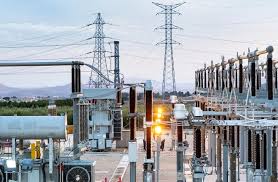Business
Nigeria Now To Migrate To Satellite Air Navigation –NAMA
Nigeria has passed a pilot test for migration from terrestrial air navigation to a satellite-based navigation, the Nigerian Airspace Management Authority (NAMA) announced on Monday in Ikeja.
The Managing Director of NAMA, Mr Nnamdi Udoh, told journalists that the feat was a great one in view of the country’s quest for advancement.
He explained that the satellite-based navigation — Global Navigation Satellite System (GNSS) — was also known as Performance-Based Navigation (PBN).
“Nigeria’s bold attempt to migrate from terrestrial air navigation to a satellite-based navigation system received a boost at the weekend when two foreign airlines tested the new procedure with pilots landing successfully at the Lagos and Kano airports respectively.
“The Emirates airline was the first to carry out the approach test on Global Navigation Satellite System (GNSS) in Lagos while the KLM recorded same in Kano.
“With the success recorded in our quest for moving from terrestrial to a satellite-based air navigation system, Nigeria has joined the league of big countries that are already operating the ICAO-endorsed air navigation programme,” he said.
ICAO is the International Civil Aviation Organisation.
Udoh said that the Nnamdi Azikiwe International Airport, Abuja and the Port Harcourt International Airport were among the four airports in the country listed for the pilot test.
“To operate on GNSS, aircraft are expected to be equipped with the prescribed gadgets on board for easy link with the satellite for seamless navigation and communication to designated airports.
“The pilots of the two foreign airlines, while making approach to landing at these airports, had little or no contact with the air traffic controllers except that they were under close watch and monitoring on the radar.
The NAMA boss said that the PBN was cost-effective, requiring less fuel during aircraft take-off and landing.
He added the system reduced carbon dioxide emission and air traffic controllers’ workload.
Udoh said that NAMA began the transformation with the completion of the N360 million World Geodetic Survey (WGS-84) of Nigeria’s 22 airports and the procedural design of the country’s four major airports, in 2010.
He said that 60 stakeholders in the aviation industry were undergoing training on the satellite- based air navigation system.
The NAMA boss said that trainees included air traffic controllers, pilots and the personnel of the Nigerian Civil Aviation Authority, Nigerian Air Force, Nigerian College of Aviation Technology and the crew of the Presidential fleet.
“They are being trained by a PBN expert, Mr Ed Hajek, from the International Air Transport Association, Montreal, Canada,” he said.
He said that NAMA would train 250 air traffic controllers on the PBN system.
Our correspondent reports that the ICAO had in 2007, endorsed the implementation of PBN in its Resolution 36/33 for all member -states including Nigeria.
Business
Abia Takes Over Electricity Supply In 8 LGAs

Business
‘Gas Shortages, Infrastructure Deficiency, Bane Of Power Sector Growth’

Business
NUPRC Blames Out Service Trunk Lines On Vandalism … As Rivers NUJ Promises Development Journalism

-

 Sports4 days ago
Sports4 days agoBayern Reach Agreement Over Diaz
-

 Rivers4 days ago
Rivers4 days agoCustoms Intercept 16 Containers Worth Over N20bn
-

 Sports5 days ago
Sports5 days agoITTF President urges NSC to invest in medal sports
-

 News4 days ago
News4 days agoNigeria’s Local Content Reforms Spark Mining Boom … Set Model for Africa
-

 News4 days ago
News4 days agoIndustrial Gas Dealers Inaugurate New Executive
-

 News4 days ago
News4 days agoFubara Hails Wike Over UNIPORT Doctorate Award
-

 News4 days ago
News4 days agoBayelsa Mulls 33 LGs, Others … As House Comm’tte Holds Public Hearing
-

 Sports4 days ago
Sports4 days agoSchool of Legal Studies Wins CEAPOLY Sports Competition …As Science And Tech Wins Football Category


